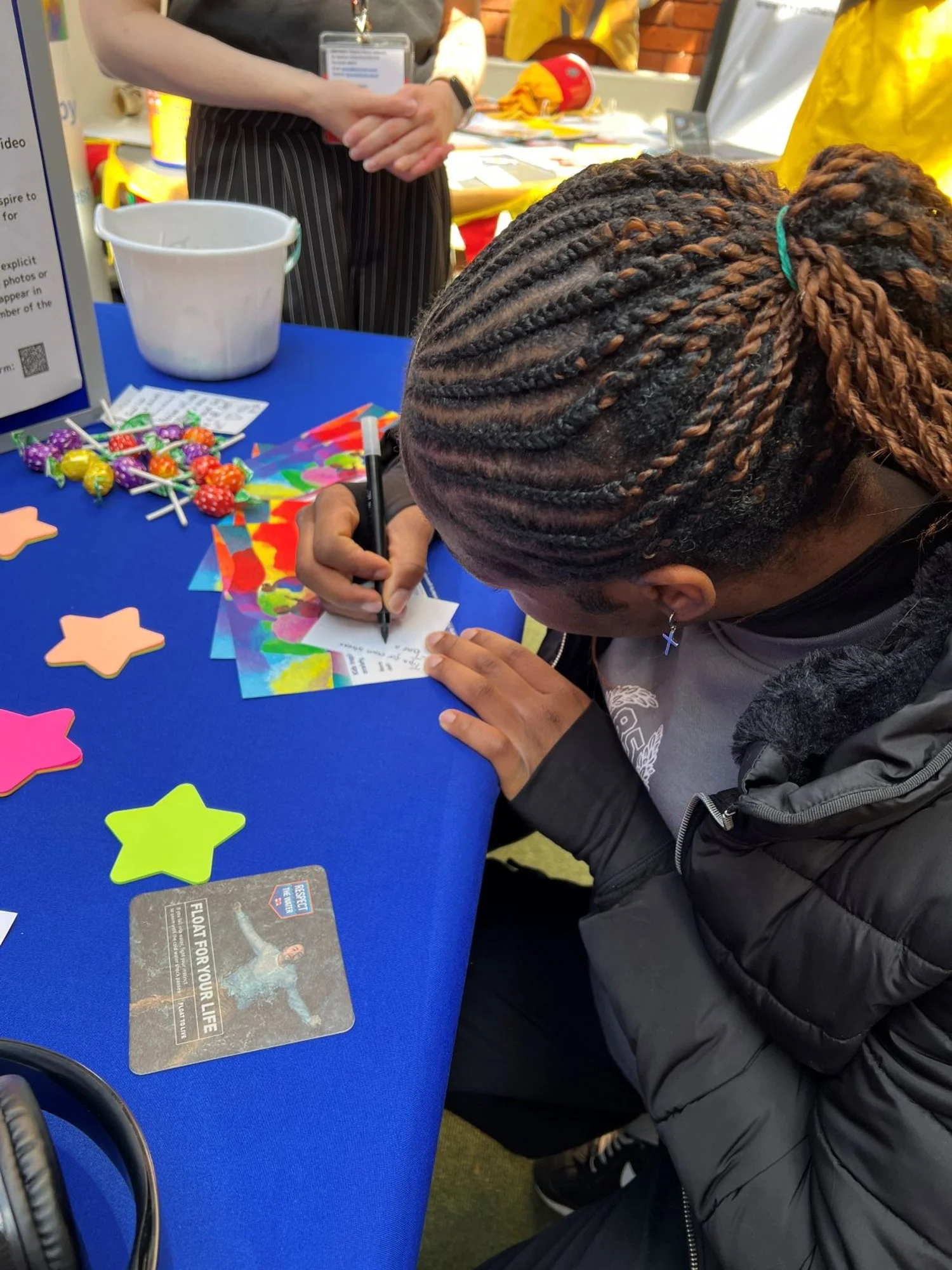Revision tips for GCSE and A-Level exams – from real young people
As a children’s mental health charity, we know GCSE and A Level exam season can be a really stressful time. The pressure to revise, keep up with everything, and still somehow take care of your mental health can feel overwhelming.
That’s why we’ve asked young people to share what’s actually helped them through revision and exams. Sixteen-year-old Dilly helped us put together these tips, based on what really worked for her during her recent GCSE mock exams.
If you or someone you know is struggling, know this: you are not alone. Exams are just one part of your journey, and your wellbeing matters every step of the way.
1. Make a simple, flexible revision timetable
“Don't go all out like, saying I'm going to revise Geography, and I'm going to revise this particular aspect in Geography on Monday morning. Instead, list the different subjects like: I’m going to do Geography, Maths and English on Monday. Then if you don't end up getting to do that, you can move a subject to the next day. You don't want to overwhelm yourself and then feel guilty that you can't get it all done.”
Trying to stick to a rigid plan can make you feel worse if life gets in the way. Keep it light and realistic – make your timetable work for you.
2. Write down what you don’t know
“Make a list of things you don't know in each subject. I've done this and it's really helpful, especially when you've done a mock exam, and your teacher has given you what you need to work on.”
Instead of revising everything, focus on the areas you’re unsure about. It’s way more effective and a lot less daunting.
3. Try using a whiteboard and the ‘blurting method’
“Using a whiteboard saved me in my recent mock exams! I saw lots of people using them but didn’t know if it would help until I gave it a try.”
Whiteboards are brilliant for revision – they’re reusable, easy to update, and take the pressure off getting things perfect. You can use them for mind maps, quick recap sessions, or active recall.
One technique Dilly used with her whiteboard is called the ‘blurting method’. Here’s how it works:
make a mind map of the topic you’re revising
take a photo of it (just in case!)
rub it out and try to write out everything you remember
check what you missed and fill in the gaps
repeat until you can do it confidently from memory
Blurting makes revision more active than just reading notes – and the whiteboard helps you do it again and again without wasting paper. Plus, using different coloured pens can help boost memory too – some people find colours help trigger recall.
4. Past papers are your best friend
“Now everyone talks about these and it's for a reason. I cannot stress how much these have helped me and how much you can learn from them.”
Past papers help you get used to how questions are asked and what examiners are looking for. The more you practise, the more familiar it all feels, so when the real exam comes, you’ll feel more prepared.
5. Don’t forget to take breaks!
“Breaks are so essential for not becoming burnt out and for staying focused – you could start with every 25 minutes, or more or less, depending on your attention span.”
Regular breaks help your brain absorb information and give your mind space to breathe. Whether it’s a quick walk, a snack, or just standing up and stretching, it really does make a difference. Rest is part of revision, not a reward for it.
Wisdom from other young people
Not everything that supports you during exam season is about revision – these little things helped other young people feel calmer and more in control.
“Eating mints helps with stress during exams to combat nausea.” – Anonymous
“Take a second to breathe, practicing deep breaths, revise in small bits, take breaks, and remember to still socialise—checking in on friends.” – Anonymous
“Wear something that brings you comfort for your exams.” – Teddy
And finally…
Please remember: your worth is never measured by your exam results. Exams are important, but your mental health is more important.
Find what works for you. Everyone is different, and that’s completely okay.
Exams don't define you or your life. Tomorrow will come, and it will bring new experiences, new joy, and paths you haven’t even imagined yet. Be kind to yourself. Take breaks. Ask for help when you need it.
If you’d like more support with the emotional side of exams, one of our therapists shares helpful advice in our blog about Navigating exam anxiety: Supporting your child through the stress — whether you’re going through it yourself or supporting someone who is.
You’ve got this.



